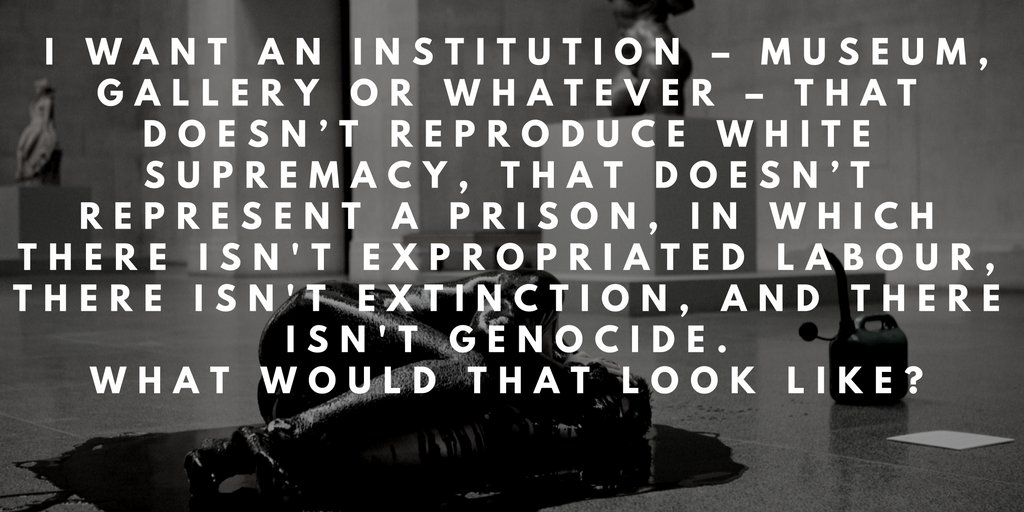Summer Intensive in Visual Culture Studies
Universidade Novo, Lisbon

Decolonization and the Monument
Introduction
Visual activism takes its name from the practice of the engaged photographer Zanele Muholi in South Africa’s LGBTQ communities. Since 2015, visual activism has engendered first the Rhodes Must Fall campaign, leading to the removal of the statue of Cecil John Rhodes from the University of Cape Town, and now the Decolonize the Curriculum campaign. This course in visual activism engages with the intersection of decolonizing and the colonial monument. The workshop will engage with key theoretical materials, activist campaigns and material legacies of colonial culture. Several workshop sessions will be devoted to monuments in Lisbon. As a course outcome, students will propose a visual activist response to the issue of the monument.
Preparatory exercises
- Read: Mirzoeff, “Empty the Museum, Decolonize the Curriculum, Open Theory.”
- Watch: “The People vs Rainbow Nation” a popular account of Rhodes Must Fall at https://youtu.be/Yu-1Wlo5_Hs
- What does it mean to decolonize? Read Eve Tuck and K. Wayne Yang, “Decolonization is not a metaphor,” Decolonization: Indigeneity, Education & Society Vol. 1, No. 1, 2012, pp. 1‐40. Visit the Monument to the Discoveries in Belém. What is the practical step to be taken with this?
- What does it mean to open theory to racial capitalism? Read Walter Johnston, “To https://bostonreview.net/forum/walter-johnson-to-remake-the-world Identify his six principles of justice and racial capital. Go the Gulbenkian Foundation and do a “slavery derive”: view the collection from the point of view of racial capitalism and enslavement. Where are the products of slavery (cotton, silver, coffee, indigo, hard wood, sugar)? Where are they depicted in visual media? How are enslaved human beings depicted or absent (noting that Cedric Robinson begins this history in medieval Europe and gives Portugal a key role)?
For those who get intrigued, Cedric J. Robinson’s classic Black Marxism deserves to be read in full, slowly and carefully. I recommend especially chapter six “The Historical Archaeology of the Black Radical Tradition,” and chapter seven “The Nature of the Black Radical Tradition.” Supplement by reading Robin DG Kelley’s essay on “What did Cedric Robinson Mean by Racial Capitalism?“
Week One: Decolonial Visual Activism (week begins May 21)
M: Visual Activism
After introductions, we’ll review the preparatory exercises. Then, work groups will draw lines of connection between visual activist and decolonizing agendas
Readings:
Mirzoeff, How to See The World, introduction and Visual Activism
Decolonizing the Curriculum: https://theconversation.com/decolonising-the-curriculum-its-time-for-a-strategy-60598
W Indigenous Perspectives
Indigenous perspectives demand a rethinking of how critical practice should be engaged and performed.
Start by watching Winona LaDuke, “Economics for the Seventh Generation” https://youtu.be/7XCi6_7plUo
Audra Simpson in her book Mohawk Interruptus challenges conventional forms of identity politics by showing that Native peoples are not seeking “recognition” from settler colonialism but are instead refusing it.
Xochitl Leyva Solano introduces the Zapatista cosmology from the Indigenous perspective, using their famous slogan “Walking While Asking Questions,” and Scott Lauria Morgensen asks what the consequences of these Indigenous methodologies should be within the colonial university structure.
PLAN: Meet at the Carmo Convent at 18h00 (open till 19h00)
Walk to Father Viera statue outside Museo São Roque.
Discussion on indigenous perspectives in Chafariz do Carmo
Th: Les Damnés de la terre
Fanon, The Wretched of the Earth
This meeting will engage in a close reading of the opening pages of Fanon’s classic text with special attention to his concept of the “aesthetics of respect for the established order” and especially how this pertains to monuments.
Background: Nelson Maldonando Torres: “Outline of Ten Theses on Coloniality and Decoloniality” available here
Week Two: All the Monuments Must Fall? (week begins May 28)
M: Monuments
Andrew Culp, “A Radical Cartography: Spatializing Power,”
https://anarchistwithoutcontent.wordpress.com/2017/08/19/a-radical-cartography- spatializing-power/
Confederate Monuments:
Bree Newsome, “Go ahead, topple the monuments. All of them,” Washington Post. http://wapo.st/2fTjNTy
On the Robert E. Lee statue in Charlottesville: https://hyperallergic.com/395627/robert-e-lee-confederate-monument-charlottesville/
Nicholas Mirzoeff, “All the Monuments Must Fall #Charlottesville” http://bit.ly/2hX3VQh
Achille Mbembe “Decolonizing Knowledge and the Question of the Archive” (2015) RMF in Conversation with Achille Mbembe PART 1 filmed by Wandile Kasibe https://www.youtube.com/watch?v=g-lU4BCsL8w
“Bad Education,” by M. Neelika Jayawardane
http://evenmagazine.com/bad-education-south-africa/
Decolonize The Brooklyn Museum
http://www.nicholasmirzoeff.com/bio/decolonize-the-brooklyn-museum-a-non-response-is-not-an-option/
Hyperallergic report: https://hyperallergic.com/440426/protesters-occupy-brooklyn-museum-atrium-demanding-decolonization-commission/
W: Fall-ism/In The Wake
Watch:
Metalepsis in Black, (2016)
Consider its challenge to academics: how do we respond?
Mfutlane wa Bophelo, “Fallism and the dialectics of spontaneity and organization: Disrupting tradition to reconstruct tradition” Pambazuka News (May 2017)
Christina Sharpe, from In the Wake, chapter one and chapter three
Sharpe’s transformatory book proposes that we are “in the wake” which has three meanings in English. She then discusses tactics to negotiate this condition.
Week Three: Case Studies
M How To See Palestine
“Orientalism” and Islamophobia are key components of coloniality. In this workshop, we’ll consider how to countervisualize war zones and refugees via the exemplary question of the Palestinians, the most “invisible” people in the current world order.
Background on migrants, see the catalog We Shout and We Shout But No-One Listens.
Consider here: How To See Palestine.
And the statement “Decolonizing Architecture” from the Decolonizing Architecture Art Residency in Beit Sahour.
Then look at this project from the Beirut-based collective Visualizing Palestine: Freedom Bound
Consider the work of Forensic Architecture in Rafah, Gaza
Look at media images from Gaza’s March of Return
W Ungovernable Aesthetics
In the wake of Trump/Brexit/Fortress Europe/Temer we should become ungovernable.
Read James C. Scott, The Art of Not Being Governed, preface and conclusion
Look at The Ungovernables (2012)
Th: Proposal Workshop
In groups of three, participants will make proposals for how to rethink monuments. This might for example consider what to do with an existing monument. It might think about what to do with the space that would result from removing a monument. It might be a proposal for different kind of monuments or different ways of remembering the past. Other options are of course available.